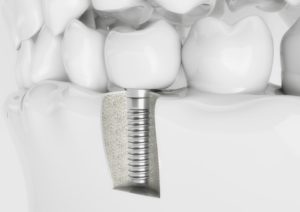 If you’ve been suffering from years of tooth loss, then you understand the hardships that it causes: limitations on food consumption, decreased confidence and changes in your facial structure. Therefore, you want a sure remedy to restore your previous state. One of the best ways to accomplish this is with dental implants of Lincoln. This is usually a seamless process, but as with anything else in life, there can be complications. As you continue reading, you’ll learn what some of them are.
If you’ve been suffering from years of tooth loss, then you understand the hardships that it causes: limitations on food consumption, decreased confidence and changes in your facial structure. Therefore, you want a sure remedy to restore your previous state. One of the best ways to accomplish this is with dental implants of Lincoln. This is usually a seamless process, but as with anything else in life, there can be complications. As you continue reading, you’ll learn what some of them are.
What is a Dental Implant?
A dental implant is a surgically inserted titanium post that replaces a missing tooth root. It is placed in the jawbone, where it is allowed to fuse and form a sturdy foundation. The procedure is typically completed in two visits: one to insert the implant and a second appointment months later to place either a crown, bridge or implant-retained dentures.
What Causes Complications with Your Implants?
The 8 items listed below help to pinpoint the most common causes for dental implant failure:
- Loose Fitting – One cause of failure is when the post doesn’t fuse with your jawbone. This could be the result of you not having enough healthy bone available. Also, sudden impact or damage to the surrounding tissue can contribute to a failure.
- Infection – If there are bacteria present during oral surgery or any time post-surgery without proper dental hygiene, your new implants can be compromised.
- Nerve and Tissue Damage – If the implant is placed too close to a nerve, you can experience chronic pain, tingling or numbness in the cheek, gums, tongue, lips or chin.
- Overloading – In some cases, a dentist may perform an immediate loading procedure, where he or she does the implant and crown in one visit. Thus, overloading is the term given to failures caused by pressure put on the crown encouraging it to loosen or dislodge.
- Sinus Problems – If the dental implant protrudes into the sinus cavity, the area can become infected and inflamed. This will warrant a corrective surgery.
- Foreign Rejection – Although titanium is considered to be biocompatible, it still has to be inserted into your body; thus, there is a risk of rejection.
- Implant Failure – On rare occasions, the implant fails because of defective parts or poor design.
- Allergic Reaction – Finally, because the titanium posts used have traces of nickel, some people can have an allergic reaction. Its symptoms can range from itchiness to Chronic Fatigue.
The dental implant procedure is tedious and requires a skilled dentist to properly execute it. But when the greater merger is formed between an experienced dentist and a patient who practices excellent oral hygiene, the results are a future full of happy moments and fantastic oral function.
About the Author
Dr. Louis Olberding received his Bachelor of Science degree in Biology from the University of Nebraska. He then went on to earn his Doctor of Dental Surgery degree from the University of Nebraska Medical Center College of Dentistry. He practices at Olberding Dental and can be reached for more information through his website.
